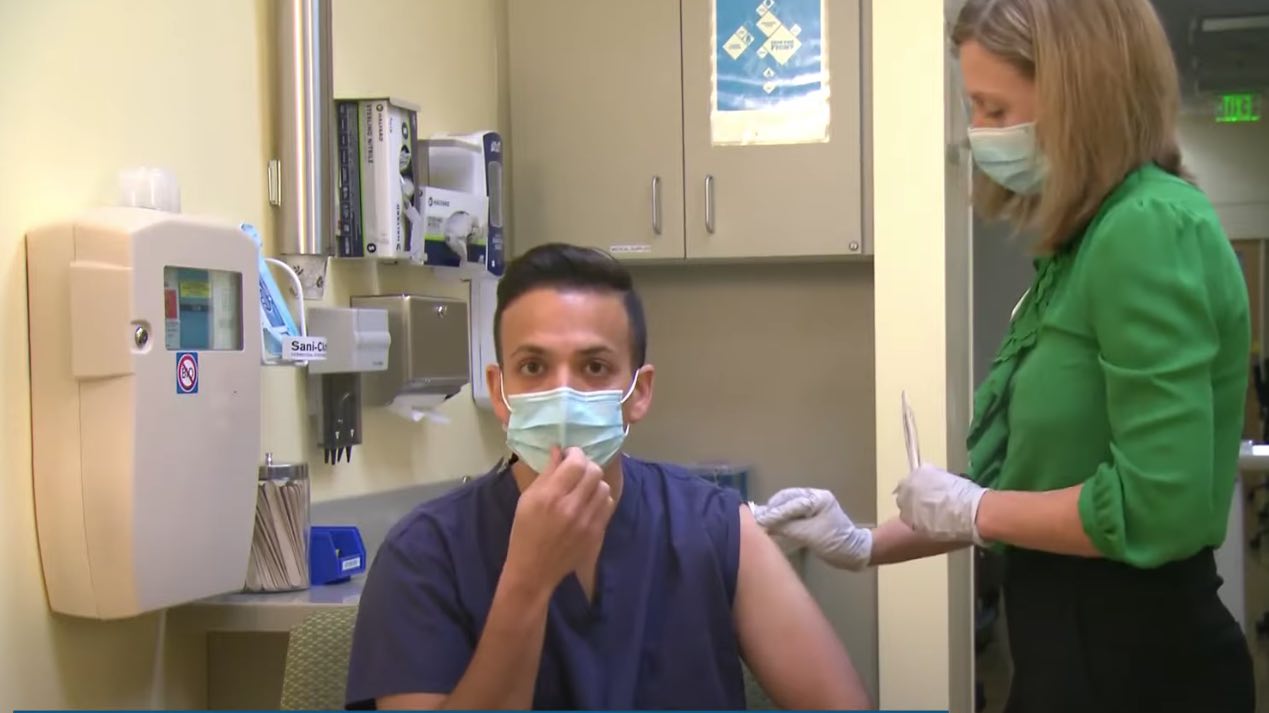Dexamethasone beneficial in treatment of meningitis
Reuters Health • The Doctor's Channel Daily Newscast
October 1, 2010 • Hospitalist, Internal Medicine, Neurology, Pharmacists, Reuters Health • The Doctor's Channel Newscast
NEW YORK (Reuters Health) – The question of whether or not to add steroids to the treatment of pneumococcal meningitis seems to have been answered affirmatively by the results of a Dutch study published in the October 26th issue of Neurology available online September 29.
“This study shows that adult patients with suspected bacterial meningitis indeed should be treated with adjunctive dexamethasone,” Dr. Diederik van de Beek stated via email. In fact, he added, if all patients with pneumococcal meningitis were treated with adjunctive dexamethasone, it would save one life every day in a country such as the United States.
Dr. van de Beek, with the Academic Medical Center, University of Amsterdam and colleagues note that four large clinical trials of adjunctive dexamethasone for meningitis gave conflicting results, so the issue has remained controversial. Nevertheless, “guidelines recommend routine use of adjunctive dexamethasone in adults with pneumococcal meningitis in high-income countries.”
The investigators derived their findings from a nationwide comparison of outcomes of community-acquired pneumococcal meningitis before and after guidelines recommended adjunctive dexamethasone in the Netherlands.
They identified 357 cases of pneumococcal meningitis in the period 2006-2009 and 352 in 1998-2002. While the case mix was similar in both periods, the difference was that 84% of the recent cohort received IV dexamethasone 10 mg every 6 hours for 4 days, compared with 3% in the previous era.
Unfavorable outcomes occurred in 39% of the 2006-2009 group and 50% in the 1998-2002 group (odds ratio 0.63, p=0.002), Dr. van de Beek and colleagues found. Specifically, the mortality rates in the two eras were 20% vs 30%, and corresponding rates of hearing loss were 12% vs 22% (both p=0.001).
Could these improvements be attributed to factors other than the use of dexamethasone, such as improved antibiotics? “It is very likely that dexamethasone contributes for the improved outcomes we observed,” Dr. van de Beek replied. “We carefully looked for other factors. For several reasons, we believe that our observational data may provide valuable evidence in the controversy about the effectiveness of dexamethasone.”
One reason, for example, is that “the bias due to prescribing dexamethasone to patients who are systematically in poorer or better condition does not apply when comparing 2 national cohorts as a whole.” Another is that there’s no evidence of changes in supportive treatment options that could explain such a large improvement.
Overall, the team concludes, “This study provides Class III evidence that dexamethasone given every 6 hours for 4 days reduced the proportion of patients with unfavorable outcome and reduced mortality in pneumococcal meningitis in adults.”
Reference:
Nationwide implementation of adjunctive dexamethasone therapy for pneumococcal meningitis
Neurology 2010;75.
“This study shows that adult patients with suspected bacterial meningitis indeed should be treated with adjunctive dexamethasone,” Dr. Diederik van de Beek stated via email. In fact, he added, if all patients with pneumococcal meningitis were treated with adjunctive dexamethasone, it would save one life every day in a country such as the United States.
Dr. van de Beek, with the Academic Medical Center, University of Amsterdam and colleagues note that four large clinical trials of adjunctive dexamethasone for meningitis gave conflicting results, so the issue has remained controversial. Nevertheless, “guidelines recommend routine use of adjunctive dexamethasone in adults with pneumococcal meningitis in high-income countries.”
The investigators derived their findings from a nationwide comparison of outcomes of community-acquired pneumococcal meningitis before and after guidelines recommended adjunctive dexamethasone in the Netherlands.
They identified 357 cases of pneumococcal meningitis in the period 2006-2009 and 352 in 1998-2002. While the case mix was similar in both periods, the difference was that 84% of the recent cohort received IV dexamethasone 10 mg every 6 hours for 4 days, compared with 3% in the previous era.
Unfavorable outcomes occurred in 39% of the 2006-2009 group and 50% in the 1998-2002 group (odds ratio 0.63, p=0.002), Dr. van de Beek and colleagues found. Specifically, the mortality rates in the two eras were 20% vs 30%, and corresponding rates of hearing loss were 12% vs 22% (both p=0.001).
Could these improvements be attributed to factors other than the use of dexamethasone, such as improved antibiotics? “It is very likely that dexamethasone contributes for the improved outcomes we observed,” Dr. van de Beek replied. “We carefully looked for other factors. For several reasons, we believe that our observational data may provide valuable evidence in the controversy about the effectiveness of dexamethasone.”
One reason, for example, is that “the bias due to prescribing dexamethasone to patients who are systematically in poorer or better condition does not apply when comparing 2 national cohorts as a whole.” Another is that there’s no evidence of changes in supportive treatment options that could explain such a large improvement.
Overall, the team concludes, “This study provides Class III evidence that dexamethasone given every 6 hours for 4 days reduced the proportion of patients with unfavorable outcome and reduced mortality in pneumococcal meningitis in adults.”
Reference:
Nationwide implementation of adjunctive dexamethasone therapy for pneumococcal meningitis
Neurology 2010;75.









